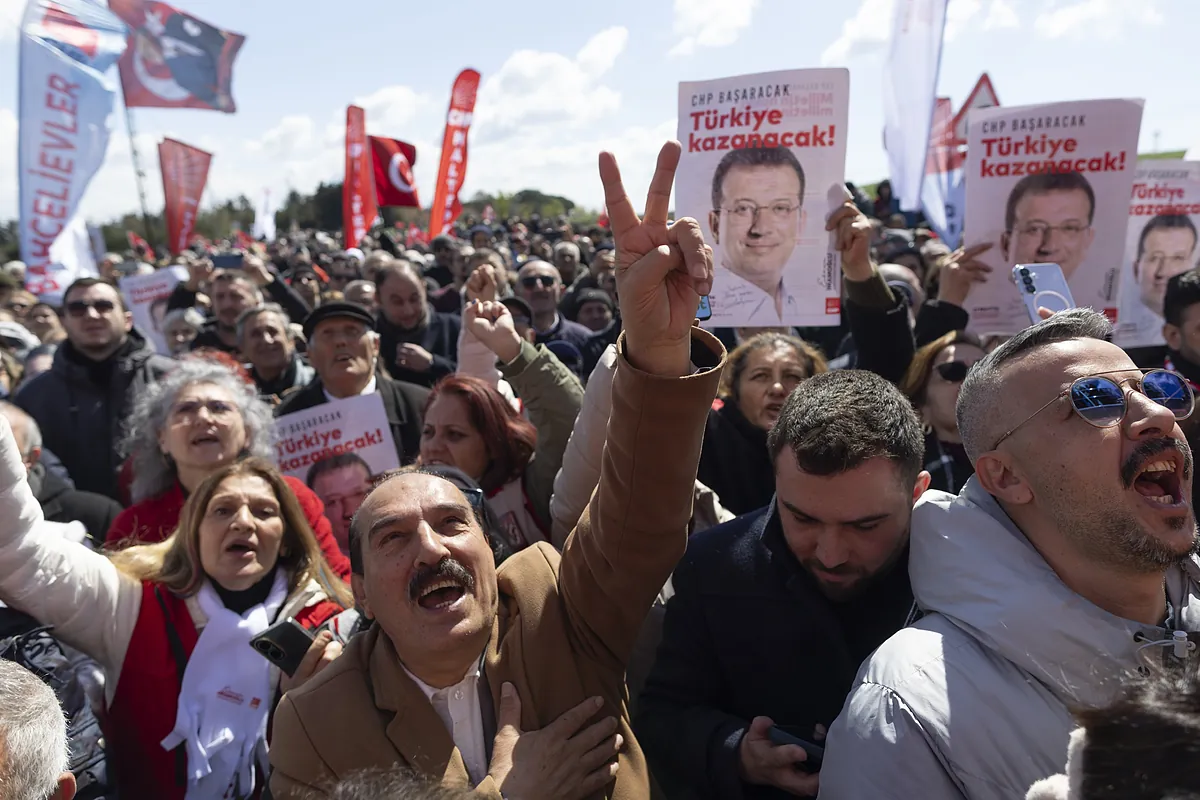Turquía: ¿Superará sus retos internos?
Editor’s Note: The political and economic landscape of Turkey is undergoing significant shifts. This article analyzes the key challenges facing the nation and explores the potential for overcoming them.
Why This Topic Matters
Turkey, a crucial player in geopolitical affairs and a bridge between Europe and Asia, faces a complex web of internal challenges. Understanding these issues – from economic instability to political polarization – is critical for comprehending regional dynamics and predicting future global trends. This article will delve into the key aspects of Turkey's current situation, exploring its economic vulnerabilities, the political climate, and the potential paths towards stability. We will also examine the social ramifications of these challenges and the role of international relations in shaping Turkey's future. Readers will gain valuable insights into a nation at a critical juncture.
Key Takeaways
| Challenge | Potential Outcome | Impact |
|---|---|---|
| Economic Instability | Stabilization through reforms or further decline | Affects living standards, foreign investment |
| Political Polarization | Increased social cohesion or further fragmentation | Impacts governance, social stability |
| Geopolitical Tensions | De-escalation or further conflict | Influences regional stability, international relations |
| Social and Cultural Tensions | Improved dialogue or increased unrest | Affects social harmony, economic progress |
Turquía: Navigating a Turbulent Path
Turkey's current context is marked by a confluence of factors demanding immediate attention. The nation's economic performance has been erratic, impacted by inflation, currency fluctuations, and global economic headwinds. Meanwhile, political polarization continues to shape the national discourse, impacting governance and social cohesion. External factors, such as regional conflicts and strained international relations, further complicate the picture.
Key Aspects of Turkey's Internal Challenges
-
Economic Vulnerability: High inflation, currency depreciation, and foreign debt present significant economic hurdles. The government's economic policies are a subject of intense debate, with critics pointing to unsustainable practices and a lack of transparency.
-
Political Polarization: The political landscape is characterized by sharp divisions between ruling and opposition forces. Freedom of expression and the independence of the judiciary are frequently debated issues. This polarization affects policymaking, social harmony, and investor confidence.
-
Geopolitical Tensions: Turkey's involvement in regional conflicts and its complex relationships with neighboring countries create geopolitical challenges. These tensions impact its security, economic prospects, and international standing.
-
Social and Cultural Dynamics: Rapid societal changes and demographic shifts contribute to social and cultural tensions. Balancing tradition and modernity, alongside managing diverse viewpoints, requires nuanced policymaking.
Detailed Analysis: Economic Instability
Turkey's economic woes are multifaceted. High inflation erodes purchasing power, impacting living standards and fueling social unrest. The volatile Turkish Lira adds uncertainty to the economy, making it difficult for businesses to plan and invest. Foreign debt levels raise concerns about the nation's long-term financial sustainability. Government policies aimed at addressing these issues have yielded mixed results, sparking debates amongst economists and analysts. The success of future reforms will significantly impact Turkey’s economic trajectory.
Interactive Elements
The Role of Political Polarization
The deep political divisions within Turkey significantly impact its ability to address economic and social challenges effectively. A lack of consensus on key policy decisions hinders progress and undermines investor confidence. The restrictions on freedom of speech and press further limit open dialogue and critical analysis, hindering constructive problem-solving. The consequences of this polarization extend to all sectors of society, impacting everything from education to the judicial system.
Navigating Geopolitical Complexities
Turkey's geopolitical position requires skillful diplomacy to manage its relationships with various actors in the region and beyond. Its involvement in regional conflicts, combined with its strategic alliances, presents a complex set of challenges. Balancing national interests with the need for regional stability demands a nuanced foreign policy approach. The success of this approach will greatly influence Turkey's overall standing on the world stage and its ability to attract foreign investment.
People Also Ask (NLP-Friendly Answers)
Q1: What is the main economic challenge facing Turkey?
A: Turkey faces high inflation, a volatile currency, and significant foreign debt, impacting economic growth and stability.
Q2: How does political polarization affect Turkey?
A: Political divisions hinder effective governance, limit constructive dialogue, and undermine investor confidence.
Q3: What are the key geopolitical challenges for Turkey?
A: Turkey's involvement in regional conflicts and its complex relationships with neighbors create geopolitical risks.
Q4: What are the social ramifications of Turkey's challenges?
A: Economic hardship and political polarization can lead to social unrest, impacting social cohesion and national unity.
Q5: What steps can Turkey take to overcome its challenges?
A: Implementing sustainable economic reforms, fostering political dialogue, and engaging in constructive diplomacy are crucial.
Practical Tips for Understanding Turkey's Future
- Follow reputable news sources: Stay informed about developments in Turkey through trusted international and Turkish media.
- Analyze economic indicators: Track inflation rates, currency fluctuations, and foreign debt levels to assess the economic situation.
- Monitor political developments: Pay attention to government policies, elections, and public discourse to understand the political climate.
- Study geopolitical events: Follow regional conflicts and Turkey's foreign policy initiatives to grasp its geopolitical context.
- Engage in informed discussions: Participate in discussions and debates to gain diverse perspectives on the challenges and potential solutions.
- Consult expert opinions: Seek insights from economists, political analysts, and sociologists specializing in Turkey.
Summary: Turkey faces significant internal challenges, including economic instability, political polarization, and geopolitical complexities. Overcoming these challenges requires a multifaceted approach that involves sustainable economic reforms, fostering political dialogue, and engaging in constructive diplomacy. The success of these efforts will significantly impact Turkey's future trajectory.
Closing Message: The future of Turkey is not predetermined. By understanding the challenges and engaging in informed discussion, we can better appreciate the nation’s complex reality and its potential for overcoming adversity. What path will Turkey choose? Only time will tell.
Call to Action: Share this article to contribute to a more informed discussion about Turkey's future. Subscribe to our newsletter for updates on related topics.
(Hreflang tags would be added here for different language versions)

